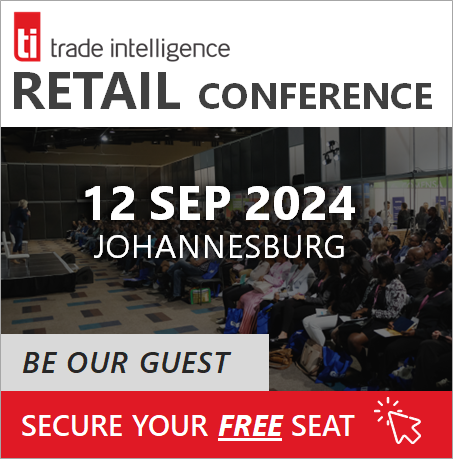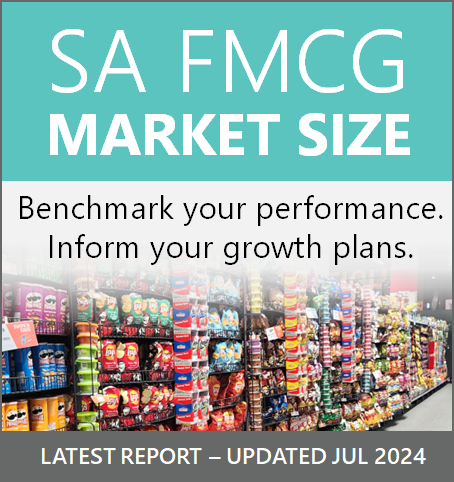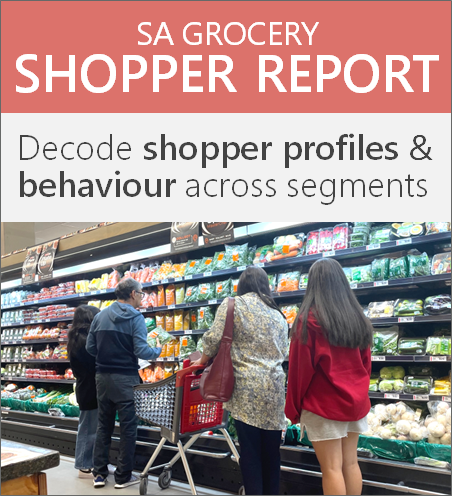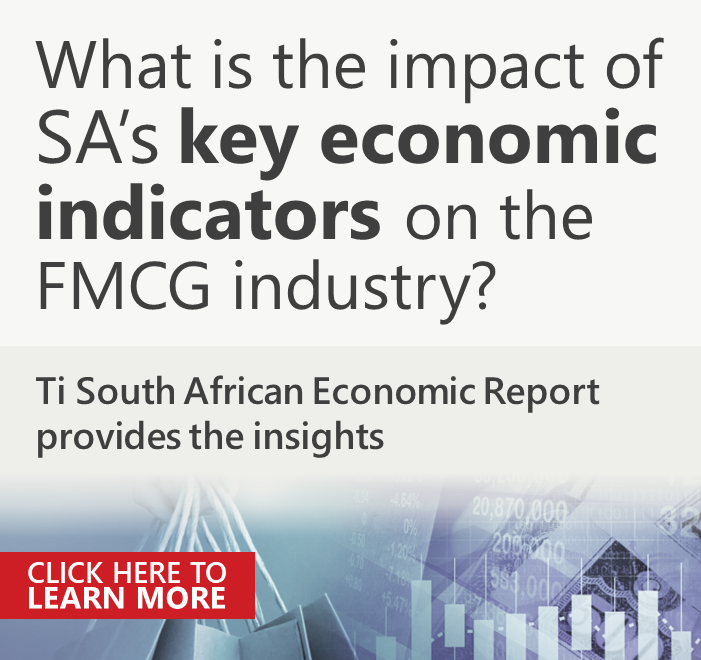
THIS ISSUE: 07 Apr - 14 Apr
Unseasonal rains in KwaZulu-Natal, a disaster, and a human tragedy. The events of this week highlight the deadly nexus of the climate emergency and failing infrastructure – an issue which also affects routes to market for food producers and food security for South Africans, see Trade Environment below. A holistic and coordinated approach nationally is needed as such events become more frequent in the years ahead. Enjoy the read.
YOUR NUMBERS THIS WEEK
RETAILERS AND WHOLESALERS
-
Dis-Chem New Kid on the Block
Dis-Chem has been hard at work integrating Baby City into its business, since its acquisition in January last year. The new branding was unveiled at the recent MamaMagic Baby Expo, the mere existence of which hints at the growing value of the category in this growing country of ours. New stores and store revamps are being rolled out across the Baby City network under the updated identity, which incorporates the Dis-Chem logo with a squishy lowercase typeface in the traditional blue and pink colourway. In addition to the value range of baby essentials punters have come to expect from Dis-Chem, Mom and Baby clinics have opened in many of the stores, offering preventative health care for all babies and toddlers with professional nurses on hand to offer a wide range of services and provide expert advice. The Dis-Chem Baby City footprint now extends across 36 stores nationally, with more to follow.
Comment: This is an area in which Dis-Chem might feasibly take on Clicks, which is also a relatively new entrant to the category with two existing Clicks Baby stores and plans to expand the footprint with another 9 stores during 2022.
-
-
Retail Brands Brand New Heavies
Every year, Brand Finance puts 5,000 of the biggest brands to the test, and publishes nearly 100 reports, ranking brands across all sectors and countries. South Africa’s top 100 most valuable and strongest brands are included in a dedicated national ranking – the Brand Finance South Africa 100 2022. This year – no surprises – MTN remains SA’s biggest brand, up +34% and valued at R59.8bn by the arcane methodologies used to establish these things. But the real news is that Checkers, its brand value up +71% to R11.1bn, is the fastest-growing brand in the Beloved Country right now, reflecting, says Brand Finance, its ability to adjust to changing consumer demand through the pandemic. And the top ten growers list was absolutely jam-packed with retailers: Woolworths SA climbed +37% to R17.3bn and came in fourth, with Clicks in 6th place, growing +36%. On the downside for our industry, Tiger Brands was the biggest loser, declining -89% in value, with RCL FOODS in 2nd, losing -73%.
Comment: There is a science in this, no doubt. But brand value is not always an indication of actual value and can change quickly with shifting consumer perspectives.
-
-
In Brief David Jones’ Lockdown
Last week, we reported that it was cheaper to get your groceries through the Checkers Sixty60 service than it was to do the shopping yourself. This week, MyBroadband announced that it had established that delivery via Pick n Pay’s asap! app was in fact cheaper and faster than Sixty60. This is shaping up to be one of those tussles which puts us in mind of the titanic market share battles of old. In other Pick n Pay news, the Big Blue has let it be known that it expects sales to increase only +5.2% to R97.9bn when it releases its annuals in May. “I will present my strategy (in May) to deliver greater innovation, growth and momentum by making Pick n Pay much more responsive to the needs of our customers,” says CEO Pieter Boone. Finally, there are growing rumblings in the Australian press that Woolworths might be looking to offload its shambolic David Jones business, which it purchased in 2014 for Au$2.1bn but has since written down to under a billion and has burned through five CEOs in six years. Woolies, they tell us, does not comment upon “media or market speculation” and remains focused on the success of the “iconic” David Jones business.
Comment: The upside for Woolies is that a sale of this, shall we say, underperforming asset could free up as much as R10bn in cash, the sort of moolah that still goes a fairly long way.
-
-
International Retailers Aldi right moves
Tesco was anticipating profits to have increased to a handsome £2.75bn when it announced its results earlier this week. The retailer enjoys a 27.4% share of the UK’s grocery market and is anticipated to come under some pressure to reduce food prices as UK consumers reckon with a £900 per household average loss in annual income. Across the pond, Walmart is beefing up the training and the packages of the drivers in its Walmart Private Fleet, where the 12,000-strong trucker army can expect starting salaries of up to $110,000 US per year. Drivers are in short supply globally as supply chains adapt to what amounts to a series of seismic shifts in the way our industry does business. Also in the US, Aldi is involved in a frankly incomprehensible kerfuffle over a Tik Tok which shows a sign in an empty fridge saying that steaks cannot be displayed there for fear of shoplifting, which is apparently becoming rife in that deeply unequal and fractious economy. Elsewhere, NGO Oxfam Novib has reported that both Aldi and Lidl have improved their human rights record, by recognising the rights of workers, small farmers and women in their supply chain in developing countries.
Comment: The buying power of global businesses can be a powerful force for good in this troubled old world of ours.
MANUFACTURERS AND SERVICE PROVIDERS
-
In Brief Feel the Power
Striding boldly into the Metaverse this week is Coca-Cola, which has just launched a pixel-themed limited edition of its Zero Sugar variant. The flavour of Coca-Cola Zero Sugar Byte is inspired by pixels themselves, those tiny bits of digital ephemerals that make up much of our lives these days, and through a code on packs of the drink consumers can access a mobile game. Coke is also collaborating with the gamer and creator of the PWR company, Lachlan Power, to create Pixel Point, an entire island in Fortnite full of co-operative mini-games. Rival PepsiCo, in the meantime, is launching Nitro Pepsi, a potentially category-disrupting drink whose bubbles are not derived from the process of carbonation, but – like fancy coffees the world over – from carbon. In other Pepsi news, PepsiCo South Africa has just launched The Bašumi Trust, a R1.6bn BBBEE employee share ownership plan which benefits around 11,000 staff.
Comment: The Metaverse is a thing. And the marketers are moving in.
-
-

Lightstone Shine a little light on me
Putting the power in the hands of suppliers this week is Lightstone Location Intelligence, available as a bespoke solution or through Lightstone’s Footprint, a subscription-based tool. Mapping out where customers live and where they shop has become more important for manufacturers if they want to connect with consumers with greater degrees of accuracy. While retailers sometimes push products into a market using their knowledge and metrics, rich demographic data informed by Location Intelligence enables manufacturers to “pull” end customers, using Lightstone’s expertise in the property industry to help map supply chains within the geographies in which there is market potential. Lightstone takes a manufacturer behind the walls of houses and apartments to see who lives there – from age, race and sex to household income. This puts greater detail onto the landscape of supply and demand, and the journey in location intelligence can go deeper, including movement by day or night and much more. Read the full article here.
Comment: To find out how Location Intelligence can help your company capitalise on this rich data, drop Lightstone a line over here: info@lightstone.co.za.
TRADE ENVIRONMENT
-
Road Infrastructure Road to Nowhere
As KZN reckons with the human and commercial costs of this week’s climate disaster, with lives lost, homes wrecked, and roads and bridges destroyed, it’s an opportune time to consider the larger implications of failing infrastructure for the economy. An Agri-SA survey has revealed that farmers move an average of 94% of their produce via road, with smaller farmers particularly affected. A combined total of R7.1bn gets moved per annum this way, and with road infrastructure deteriorating – particularly rural gravel roads – this has grave implications for food security. The KwaZulu-Natal Agricultural Union (Kwanalu) reports similar concerns and is pressurising the provincial government to take action. “The movement of food, goods and services is critical for food security, employment and economic growth,” says Kwanalu. Heavy rains earlier this year – even before this week’s flooding – have resulted in damages to roads that will cost an estimated R3bn to repair, according to the KZN Department of Transport, which has launched an Operation Siyazenzela to mobilise and integrate resources to address the issue.
Comment: The larger issue, of course, is that road transportation – vulnerable to weather and other challenges – should be only part of a mix which includes other infrastructure such as rail. But that’s a story for another day.
Sign up to receive the latest SA and international FMCG news weekly.
Tatler Archive
“A rising tide doesn't raise people who don't have a boat. We have to build the boat for them. We have to give them the basic infrastructure to rise with the tide.”







1.png)
